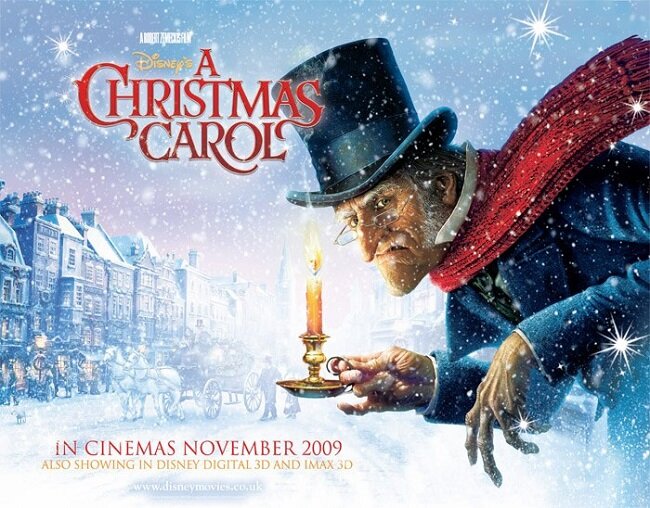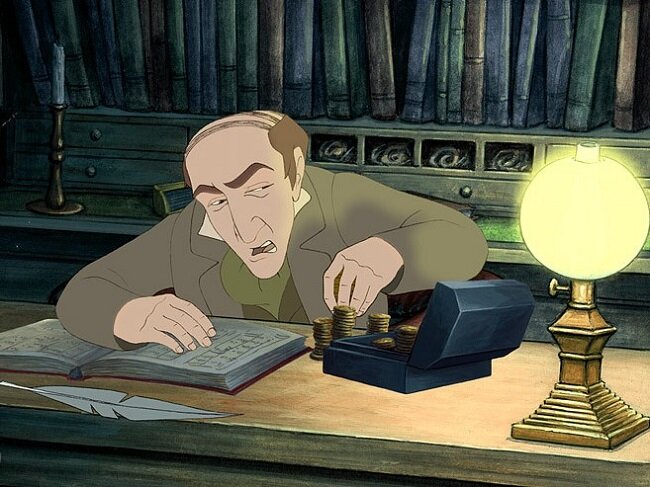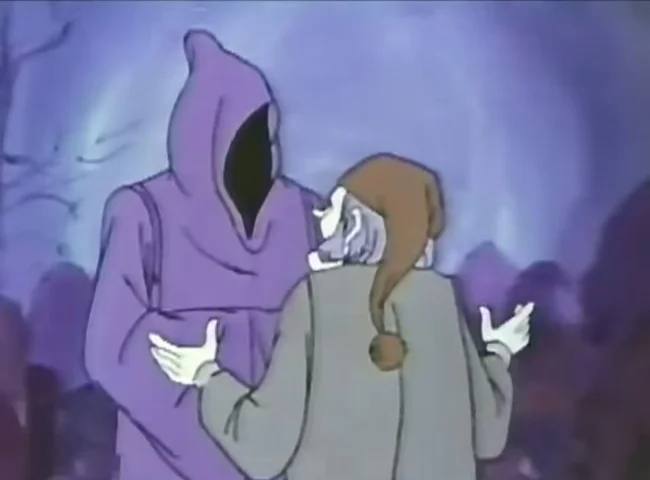Scrooge (1970)
The all-star big screen musical was desperately striving to be different during the sixties and seventies, producing many hits and misses. Tommy, The Lost Horizon and The Wiz are prime examples of the experimentation made within the genre at the time. However, due to the success of Oliver! at the box office in 1968 it was thought that there was potential mileage to be had from Dicken's classic "A Christmas Carol". So the musical Scrooge was conceived. Unlike Oliver! it was not based on a existing stage adaptation but on a wholly original screenplay, although a theatrical treatment has since been adapted.
The creative foundation of this 1970 production is twofold. Firstly there is Leslie Bricusse's superb score and literate screenplay. Then there is Albert Finney's remarkable performance as Scrooge. Bricusse adapts Dickens novella superbly, including much of the original dialogue and subtleties of the story. The songs are very catchy and emotive, especially "Father Christmas" and "Thank You Very much". Both the musical numbers and the screenplay set the tone perfectly. Veteran director Ronald Neame manages to capture the warmth and sentimentality of the book. Once again this adaptation does not shy away from the fact that this is a ghost story and the sequence when Scrooge and Marley (Alec Guiness) take to the air and fly among the lost souls is rather creepy.
But it is Albert Finney's acting that dominates the movie during its well paced, two hour running time. Relying on the minimum of make-up and avoiding the use of prosthetics, Finney convinces the audience that he is a man of mature years rather than the 34 year old that he was at the time, by his demeanour, mannerism and gate. This is also possibly the most pitiable on screen portrayal of Scrooge, as the screenplay specifically emphasises the impact of his failed engagement. The production cost $5 million and although mainly set bound, boasts a very handsome production design. It catches the Dickensian spirit of London well, especially the hustle and bustle of the busy London markets.
Scrooge also features a wealth of British characters actors and benefits greatly from their talent. David Collings is an earnest Bob Cratchit and Anton Rodgers succinctly depicts one of Scrooge's debtors. But perhaps the most sublime casting is Kenneth Moore as the Ghost of Christmas Present. His larger than life personality and specific style of acting fits the role perfectly. Surprisingly he also manages to morally chastise Scrooge successfully without resorting to bluster. Moore was a truly underestimated actor and it is roles such as this that show his true range. With regard to Lawrence Naismith, let it suffice to say that the man was born to play Fezziwig.
Scrooge enjoyed only modest financial success upon its initial release. The critics praised Finney's performance but the box office was merely adequate and the public were split on both the songs and tone of the movie. The non-canonical scenes set in hell, seemed to be a stumbling block and were subsequently removed from TV prints of the film in future years. Forty Five years on the movie now has a much wider fan base and has become a seasonal institution for many. Critics have also revised their opinions deeming it a strong adaptation. For me it is one of those rare occasions where the source text and the medium of the musical combine to produce a movie of great emotional resonance. Dickens’ work seldom receives such treatment.

















